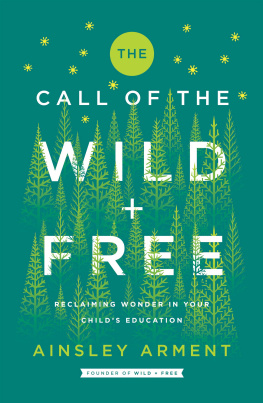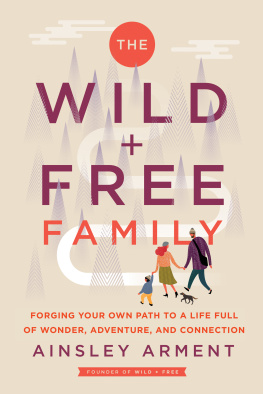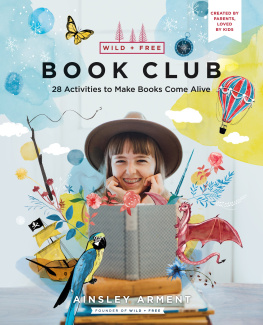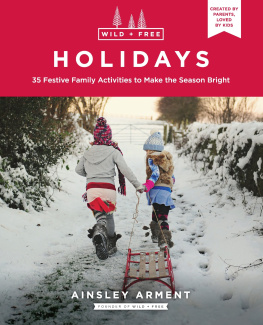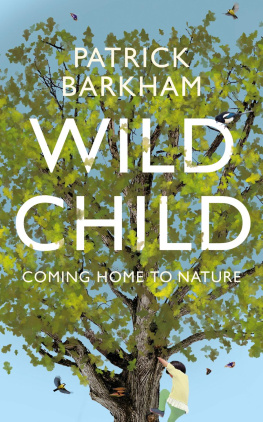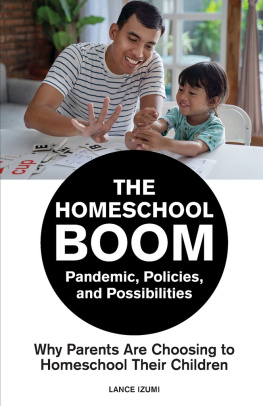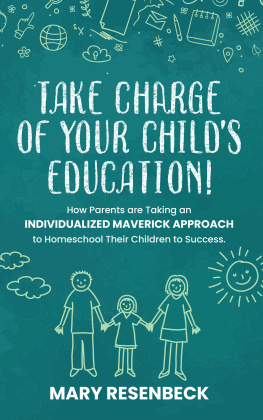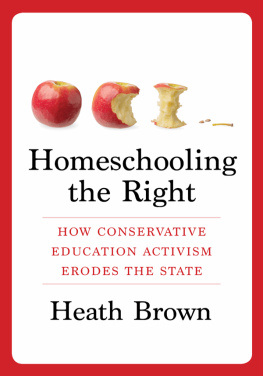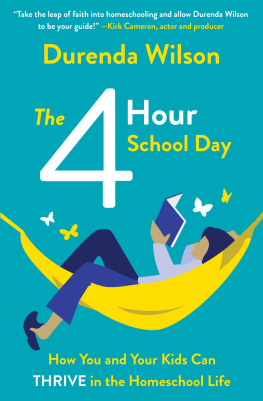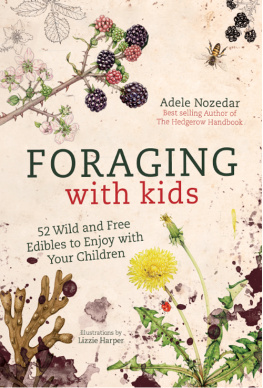Table of Contents
Guide
Australia
HarperCollins Publishers Australia Pty. Ltd.
Level 13, 201 Elizabeth Street
Sydney, NSW 2000, Australia
www.harpercollins.com.au
Canada
HarperCollins Publishers Ltd
Bay Adelaide Centre, East Tower
22 Adelaide Street West, 41st Floor
Toronto, Ontario, M5H 4E3
www.harpercollins.ca
India
HarperCollins India
A 75, Sector 57
Noida
Uttar Pradesh 201 301
www.harpercollins.co.in
New Zealand
HarperCollins Publishers New Zealand
Unit D1, 63 Apollo Drive
Rosedale 0632
Auckland, New Zealand
www.harpercollins.co.nz
United Kingdom
HarperCollins Publishers Ltd.
1 London Bridge Street
London SE1 9GF, UK
www.harpercollins.co.uk
United States
HarperCollins Publishers Inc.
195 Broadway
New York, NY 10007
www.harpercollins.com
THE CALL OF THE WILD + FREE . Copyright 2019 by Ainsley Arment. All rights reserved under International and Pan-American Copyright Conventions. By payment of the required fees, you have been granted the nonexclusive, nontransferable right to access and read the text of this e-book on-screen. No part of this text may be reproduced, transmitted, downloaded, decompiled, reverse-engineered, or stored in or introduced into any information storage and retrieval system, in any form or by any means, whether electronic or mechanical, now known or hereafter invented, without the express written permission of HarperCollins e-books.
Cover design: Studio Gearbox
Tree illustration by pikolorante | Shutterstock
FIRST EDITION
Library of Congress Cataloging-in-Publication Data
Names: Arment, Ainsley, author.
Title: The call of the wild and free : reclaiming wonder in your childs education / Ainsley Arment.
Description: First edition. | San Francisco : HarperOne, 2019 | Includes bibliographical references. | Summary: Speaking to the growing national trend, The Call of the Wild and Free equips families to provide quality homeschool education, and encourages all parents and caregivers to raise kids to experience the adventure, freedom, and wonder of childhoodProvided by publisher.
Identifiers: LCCN 2019019923 | ISBN 9780062916518 (hardcover) | ISBN 9780062916532 (ebook)
Subjects: LCSH: Home schooling. | EducationParent participation. | Child rearing.
Classification: LCC LC40 .A76 2019 | DDC 372.1042/42dc23
LC record available at https://lccn.loc.gov/2019019923
Digital Edition SEPTEMBER 2019 ISBN: 978-0-06-291653-2
Version 08072019
Print ISBN: 978-0-06-291651-8
To the one
who caught me reading
long after bedtime
and brought me a flashlight
instead of taking my book
who stepped aside
to make room for my wings
who saw my future
before I could dream it
who loved my wild
and let me be free
This is for you

Kirsty Larmour | @kirstylarmour
Contents
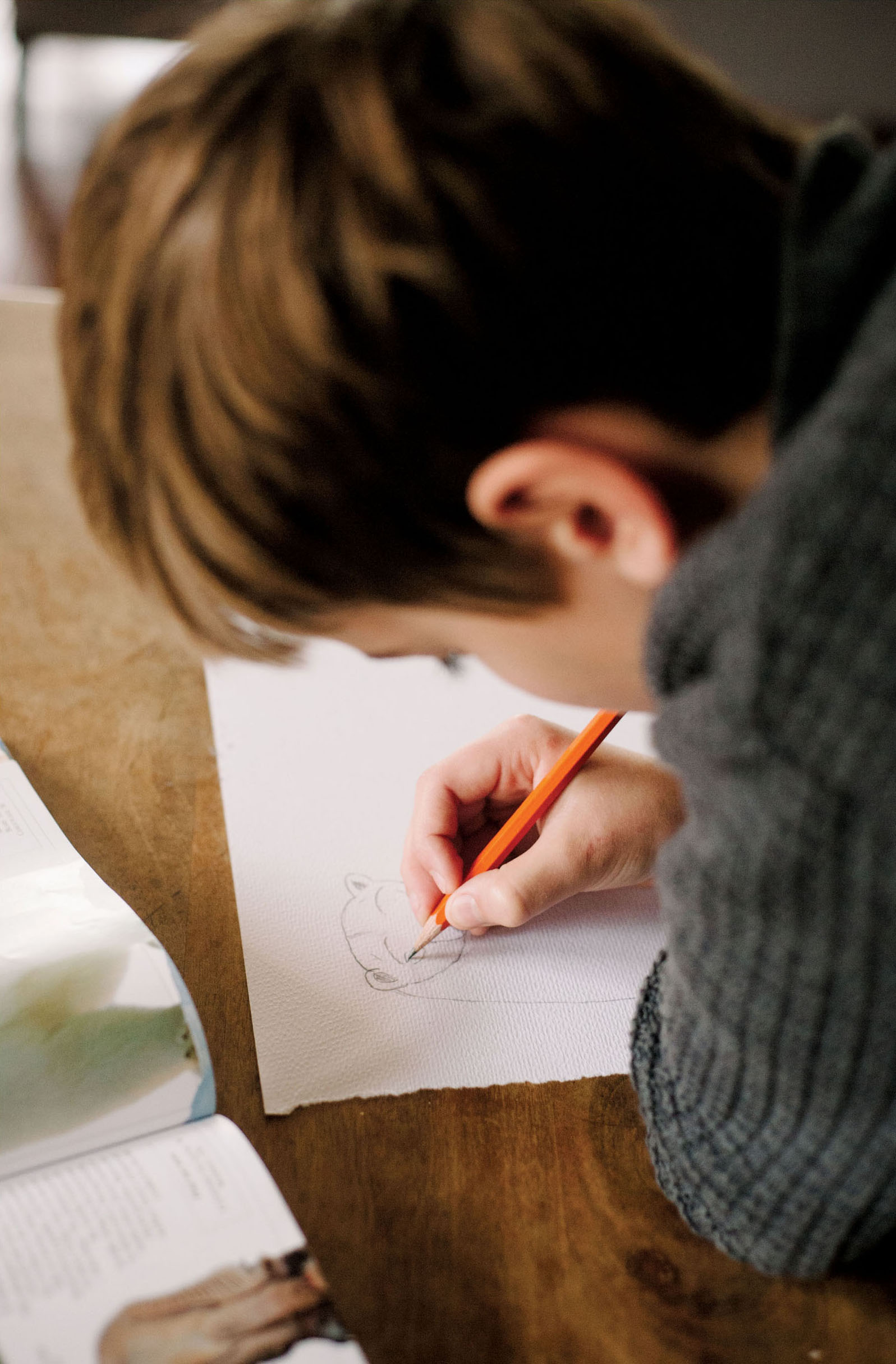
Bethany Douglass | @cloisteredaway
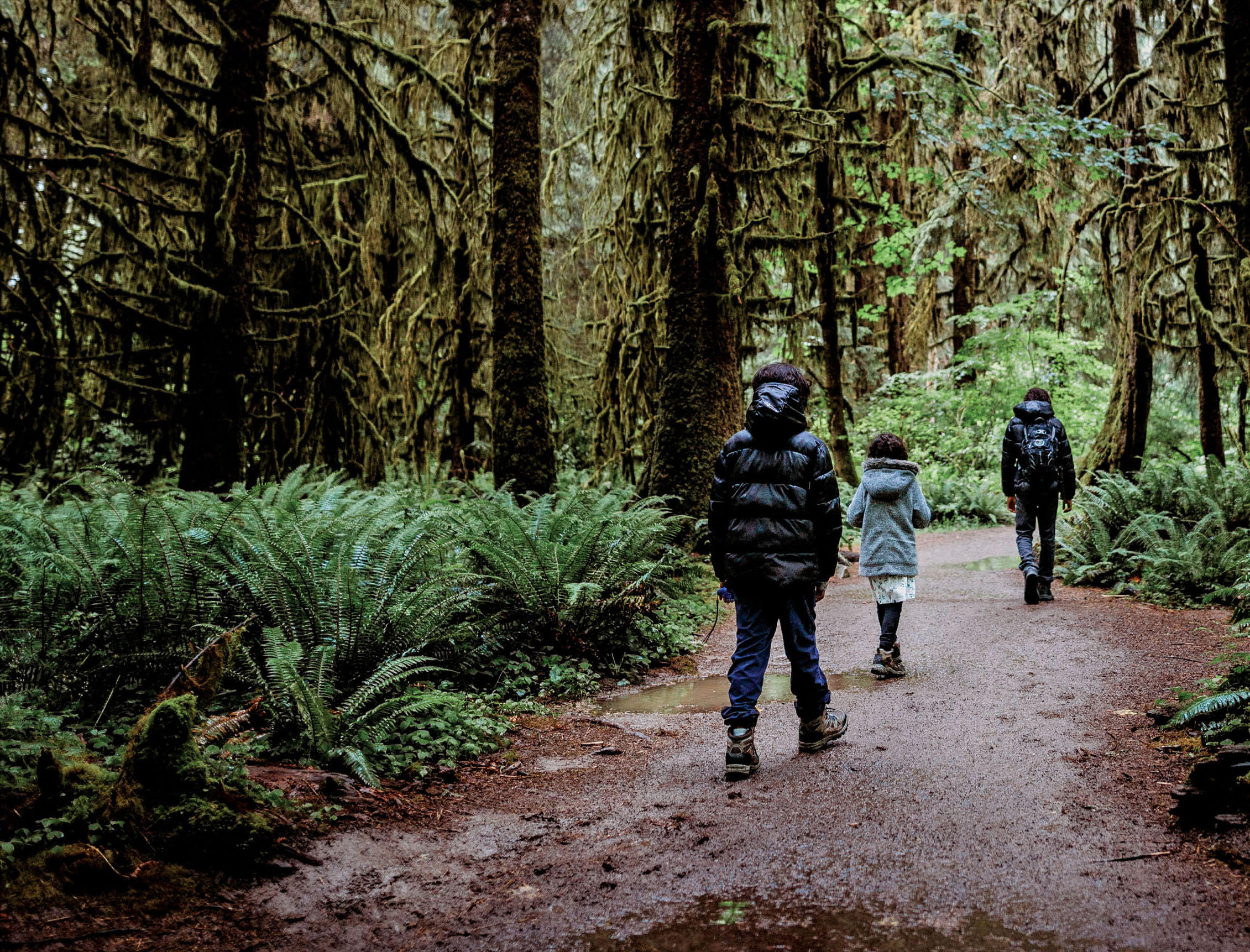
Naomi Ovando | @3bebesmama
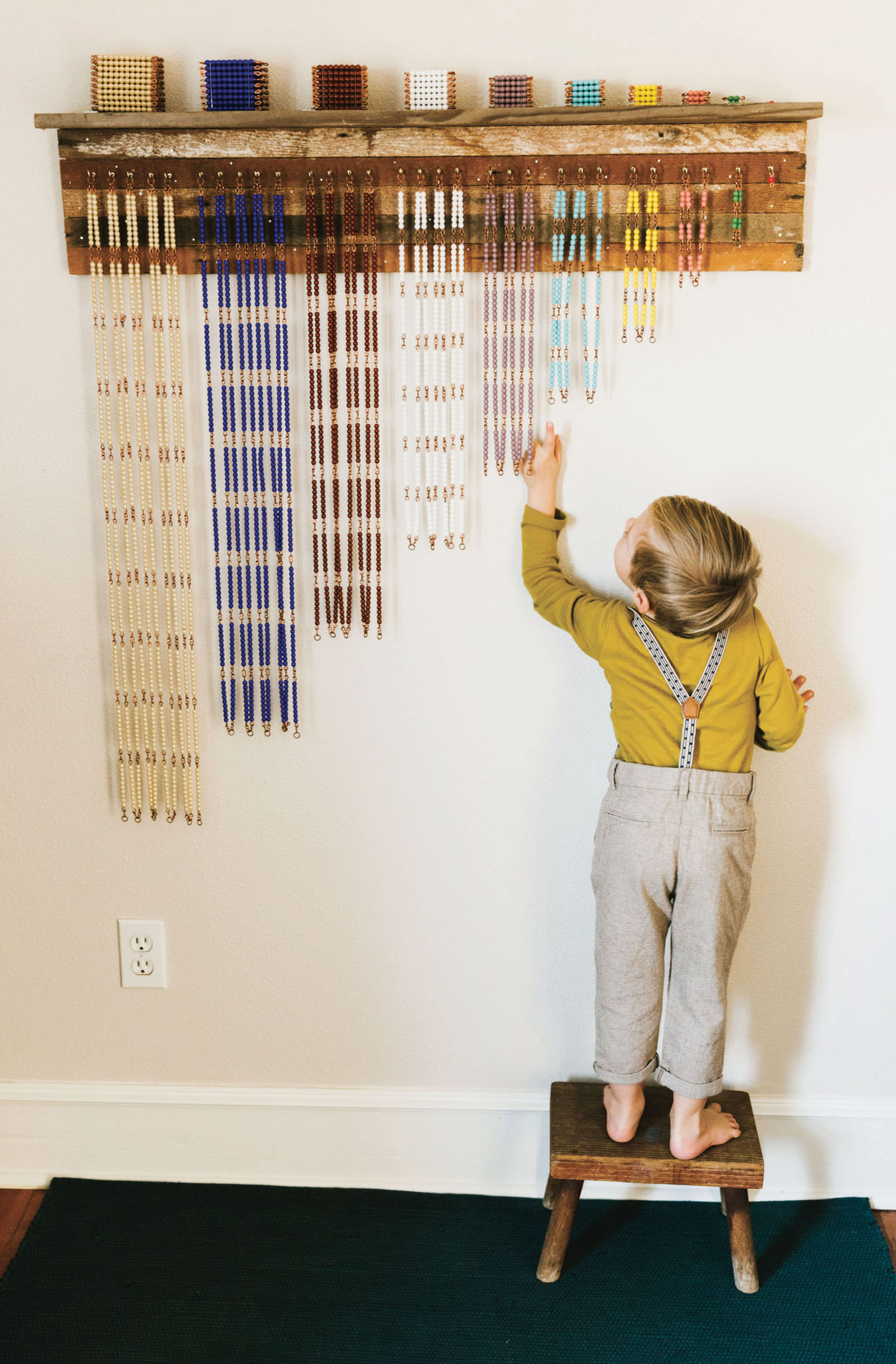
Michelle Garrels | @ellegarrels
NINE YEARS AGO, I PUT MY FIVE-YEAR-OLD SON, Wyatt, on a bus for his first day of school and did what nearly every other mother doesI followed it.
I watched his little blond head bopping above the seat as the bus wound through the neighborhood. I drifted behind at every stop, watching the other kids get on and my son looking out the window. I hovered in the school parking lot as he walked into the building.
And then I proceeded to cry at the loss of his childhood.
I know, I know, this is what every red-blooded kid goes through in life. Its a rite of passage for growing up. Going to school is what kids do. It helps them become confident, independent, socialized, educated, and capable of thriving in the world.
I did it. You probably did it. So I went along with it. After all, I didnt know any different. And Wyatt thrived in school. He made friends. He got good grades. He impressed his teachers. He won Citizen of the Month, and we proudly displayed the banner in our front yard.
I joined the class for field trips, birthdays, and end-of-year celebrations. When he was home, we went on adventures, played outside, read lots of books, and made the most of our time together. He learned to read and sit in a circle, and at the end of the year, I felt proud of us both. He made it. I made it. I decided half-day kindergarten wasnt half bad. But then it was over.
The next year, we started all over again. This time for a full seven-hour day.
It wasnt long before I noticed some changes in my firstborn. His disposition toward us changed. He seemed more distant. He became more interested in what other kids thought of him. He was losing his childlike innocence.
I saw the light go out in his eyes.
My son had always cherished his childhood. He wasnt in a rush to grow up. He empathized with those who were hurting or suffering. He was troubled by coarse language. And he could easily discern the negative attitudes of other people.
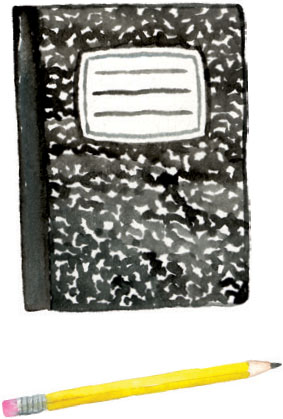
Paper Sphinx | Creative Market
By being thrust into the rushing stream of peers I couldnt filter, pressures I couldnt anticipate, and institutionalized learning with people who didnt know or love my son as much as I did, he was becoming someone other than who he was meant to be.
Also, I missed my boy. The bus arrived at eight oclock in the morning and came home at nearly four in the afternoon. We had a little time for play before dinner, but then he had an hour of homework, and then it was time for bed.
It didnt seem right that strangers got to spend more time with my son than I did.
I wanted to give him a childhood. And I wanted to experience it with him.
THE LOSS OF CHILDHOOD
Im just going to say it. Childhood has been lost. To video games, to sports leagues, to after-school programs, to day care, to mobile devices, to peer pressure, to Netflix, to gifted classes, to extracurricular activities, to homework, to being carted between split homes every other weekend, and to busy schedules, just like their parents.
Some say this is progress. That weve evolved as a species to the point where children are able to act like adults, carry the same responsibilities, and handle the same pressures.
And to a degree, this is true. Science has taught us so much about the young mind. Weve learned there are billions of neurons making connections in a young child, that working memory is key to intelligence, and that the brains ability to decipher the subtle sounds of foreign languages begins to diminish after the age of five.
Weve learned that the immature brain is capable of extraordinary feats and that it is most flexible early in life to engage with a wide range of experiences, languages, and interactions.

